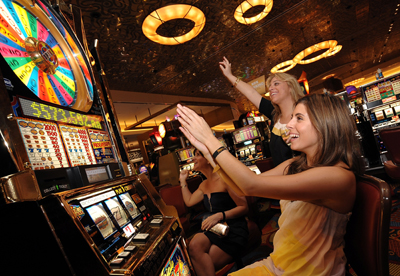
Casino activities have fascinated players for centuries, luring them into a realm of excitement, fortune, and fortune. From the flashing lights of video slots to the intense intensity of poker tables, these experiences offer a distinct mixture of amusement and hazard. However, underneath the shiny exterior of this glamour and glamour lies a complex connection of math that shapes every result and action made within the gaming hall. casino no ID verification
Comprehending this relationship between gambling games and math merely enhances the player’s journey but also can help players make knowledgeable choices. Whether you are a recreational gambler or a avid fan, recognizing the mathematical principles at play can offer valuable insights into likelihood, probabilities, and strategies, eventually shaping how one approaches these chance games.
Arithmetic Probability in Gambling
In the sphere of casino activities, mathematical probability plays a vital role in determining outcomes and guiding player decisions. Every game has a specific set of rules and a specific probability framework that influences its mechanics. For example, in activities like roulette, players must understand the probabilities of landing a specific digit or color. The probability of specific occurrences happening can be assessed, and this understanding can greatly affect wagering strategies.
Gambers also need to be informed of the house edge, which is the mathematical benefit that gambling establishments hold over players in the long run. This edge varies across various games. In blackjack, skilled players can use strategies to minimize the house edge to as low as one percent, while in activities like slot machines, the house advantage can be much higher. Understanding the house edge allows players to make informed choices about which activities to participate in and how much to wager.
Additionally, likelihood is fundamental in the concept of risk versus reward in betting. Each wager carries a specific risk factor, and gamblers must consider the potential payout against that danger. Activities like poker require gamblers to not only calculate the chances of their personal showing winning but also to evaluate the probabilities of their opponents’ showings. By utilizing mathematical principles to their gameplay, gamblers can boost their odds of winning and participate more strategically in the exciting realm of casino activities.
Expected Worth in Casino Activities
When talking about casino games, one of the basic concepts rooted in math is the expected value. This numerical metric assists gamblers grasp the possible results of their wagers over time. In basic terms, expected value (EV) calculates the average amount a player can expect to win or lose per bet if they were to play the activity repeatedly. Each activity has its own EV, influenced by the probabilities and the house edge, which indicates the benefit that the casino holds.
For instance, consider a activity like roulette. The anticipated value can be calculated based on the particular wager made. If a gambler bets on a single number, the payout is 35 to 1, but the actual chances of winning that wager are 1 in 37 (in European roulette). This results in a detrimental expected worth, indicating that, on the whole, players will incur a loss money over time when playing this type of wager. Understanding this concept allows players to make more informed decisions about which activities and wagers may be less advantageous.
Furthermore, the investigation of anticipated value can lead to better money management. Players who comprehend the mathematics behind their games are often able to set realistic expectations. By recognizing their possible deficits and profits, they can adjust their playing strategies accordingly, which may enhance their overall gambling experience. As a result, expected worth serves as a crucial tool for both novice and experienced gamblers to navigate the often volatile character of casino games.
Tactics and Chances: The Mathematics Behind Success
In casino games, understanding the chances is crucial for participants seeking to enhance their likelihood of success. Each activity has its own unique set of probabilities that dictate successful outcomes, and these statistics are often presented in the game’s guidelines or payout tables. For instance, in games like blackjack, participants can improve their probabilities through methods such as counting cards, which is based on arithmetic concepts to gain an upper hand over the casino. By acquainting themselves with the probabilities, participants can make more knowledgeable determinations on when to wager and when to give up.
Additionally, the concept of average value plays a major function in gaming tactics. Average outcome assesses the mean outcome of a bet over time, allowing gamblers to assess whether a particular wager is worth taking. For instance, fruit machines have a fixed payback percentage, which can suggest the typical return a gambler can look for on their stakes. By choosing games with better expected values, players can reduce the house advantage, boosting their possible rewards in the future.
Finally, successful players often employ a combination of luck and mathematical strategy to improve their gaming experience. While chance is unpredictable, managing a wagering approach based on calculative ideas can lead to more advantageous situations. By utilizing techniques such as money management and game selection, players can apply math to handle the volatile nature of gambling activities, making the most of their investments and investments at the tables.